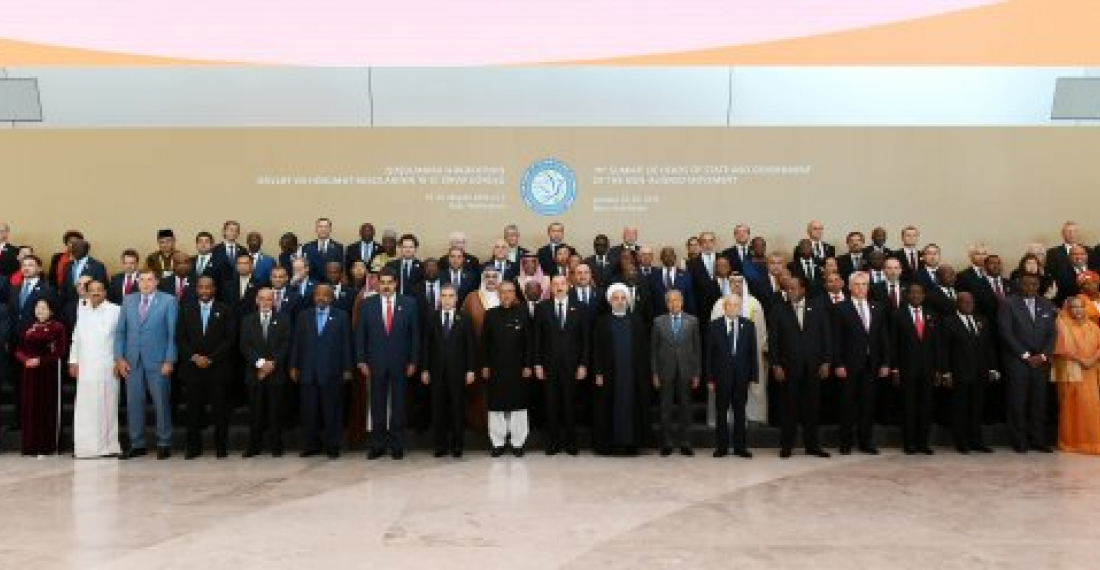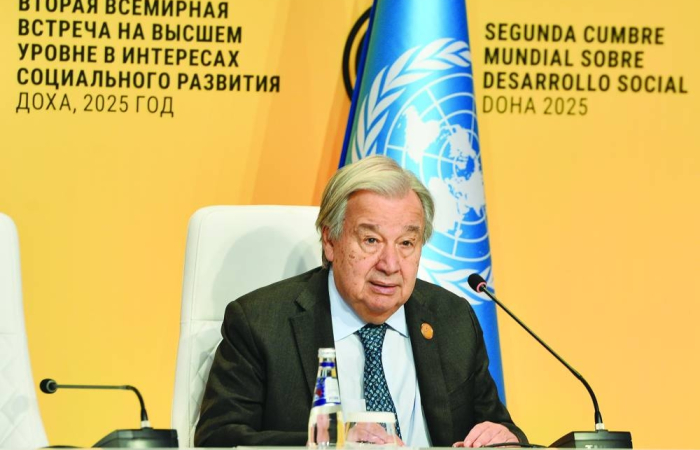18-й саммит Движения неприсоединения открылся в столице Азербайджана, Баку, с участием делегаций из 120 стран-членов Движения и 17 стран-наблюдателей, многие из которых возглавляют главы государств или правительств.
Движение неприсоединения возникло в первые годы холодной войны как группа стран, большинство из которых были из Африки, Азии и Латинской Америки, которые не были частью какого-либо военного блока. После конференции в Бандунге в 1955 году движение было официально создано в 1961 году, и на протяжении многих лет оно стало голосом развивающихся стран на глобальных политических и экономических форумах.
Азербайджан принял на себя пост председательствующей страны в организации.
Выступая на официальном ужине в честь прибывших делегаций, президент Ильхам Алиев сказал, что Азербайджан «будет строить свои приоритеты на исторических принципах Бандунга. Наша цель - еще больше повысить роль и авторитет Движения неприсоединения в системе международных отношений, вместе со странами-участницами внести вклад в укрепление мира и безопасности на планете, устойчивое развитие и обеспечение справедливости».
Президент добавил:
"Бандунгские принципы, охватывающие такие принципы, как уважение суверенитета, территориальной целостности всех стран, невмешательство во внутренние дела государств, защита взаимных интересов и поощрение сотрудничества, совпадают с внешней политикой Азербайджана.
Хочу выразить признательность за отраженные в документах Движения неприсоединения решения, связанные с урегулированием армяно-азербайджанского нагорно-карабахского конфликта и поддерживающие территориальную целостность Азербайджана. Мы высоко ценим эту поддержку.
В период председательства нашей страны в Движении нашим приоритетом станет поощрение солидарности и отношений взаимной поддержки между государствами-участниками. Мы также постараемся оказать содействие решению существующих между странами-членами вопросов и возможных проблем."
Саммит открылся в пятницу и продолжится сегодня, после чего ожидается принятие ряда деклараций и заявлений.
источник: commonspace.eu
фото: Главы делегаций на саммите Движения неприсоединения в Баку, 25 октября 2019 года.






